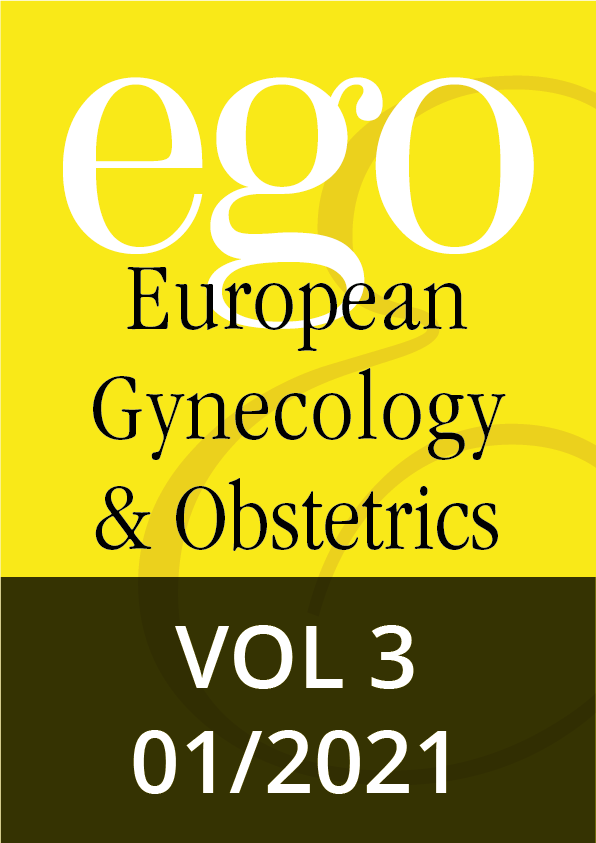Position paper, 002–012 | DOI: 10.53260/EGO.213011
Short reviews, 013–021 | DOI: 10.53260/EGO.213012
Short reviews, 022–028 | DOI: 10.53260/EGO.213013
Reviews, 029–033 | DOI: 10.53260/EGO.213014
Case reports, 034-036 | DOI: 10.53260/EGO.213015
Case reports, 037–039 | DOI: 10.53260/EGO.213016
Case reports, 040–043 | DOI: 10.53260/EGO.213017
Case reports, 044–047 | DOI: 10.53260/EGO.213018
Original articles, 048–053 | DOI: 10.53260/EGO.213019
Original articles, 054–057 | DOI: 10.53260/EGO.2130110
Ritual female genital mutilation: management of women during the reproductive years
Abstract
Female genital mutilation (FGM) has consequences on several aspects of women’s health, especially in the psychosexual field. Furthermore, the sociocultural and familial characteristics of women requesting genital reconstructive surgery after FGM are diverse. Our aim was to identify the benefits and complications of this surgery and to determine female satisfaction after the procedure, as well as to analyze the different types of approach to the treatment of any health problem related to FGM. Various factors lie behind requests for genital reconstruction after FGM, and they are often interconnected and related to the desire for improvement of body image and sexuality. Surgical interventions should be appropriately selected according to the genital lesions. Among the many supposed beneficial effects of reconstructive surgery, there is evidence only to support improvements in genital pain and dyspareunia. There is a need to define, standardize and adopt common definitions for clinical findings and reported outcomes of the surgeries used to manage the problem, considering the characteristics of the individual and the extent of the lesions. Additional research is needed to evaluate the efficacy of psychosexual therapy versus reconstructive surgery for the treatment of FGM-related complications.
ISSUE 2021/01

Position paper, 002–012 | DOI: 10.53260/EGO.213011
Short reviews, 013–021 | DOI: 10.53260/EGO.213012
Short reviews, 022–028 | DOI: 10.53260/EGO.213013
Reviews, 029–033 | DOI: 10.53260/EGO.213014
Case reports, 034-036 | DOI: 10.53260/EGO.213015
Case reports, 037–039 | DOI: 10.53260/EGO.213016
Case reports, 040–043 | DOI: 10.53260/EGO.213017
Case reports, 044–047 | DOI: 10.53260/EGO.213018
Original articles, 048–053 | DOI: 10.53260/EGO.213019
Original articles, 054–057 | DOI: 10.53260/EGO.2130110
